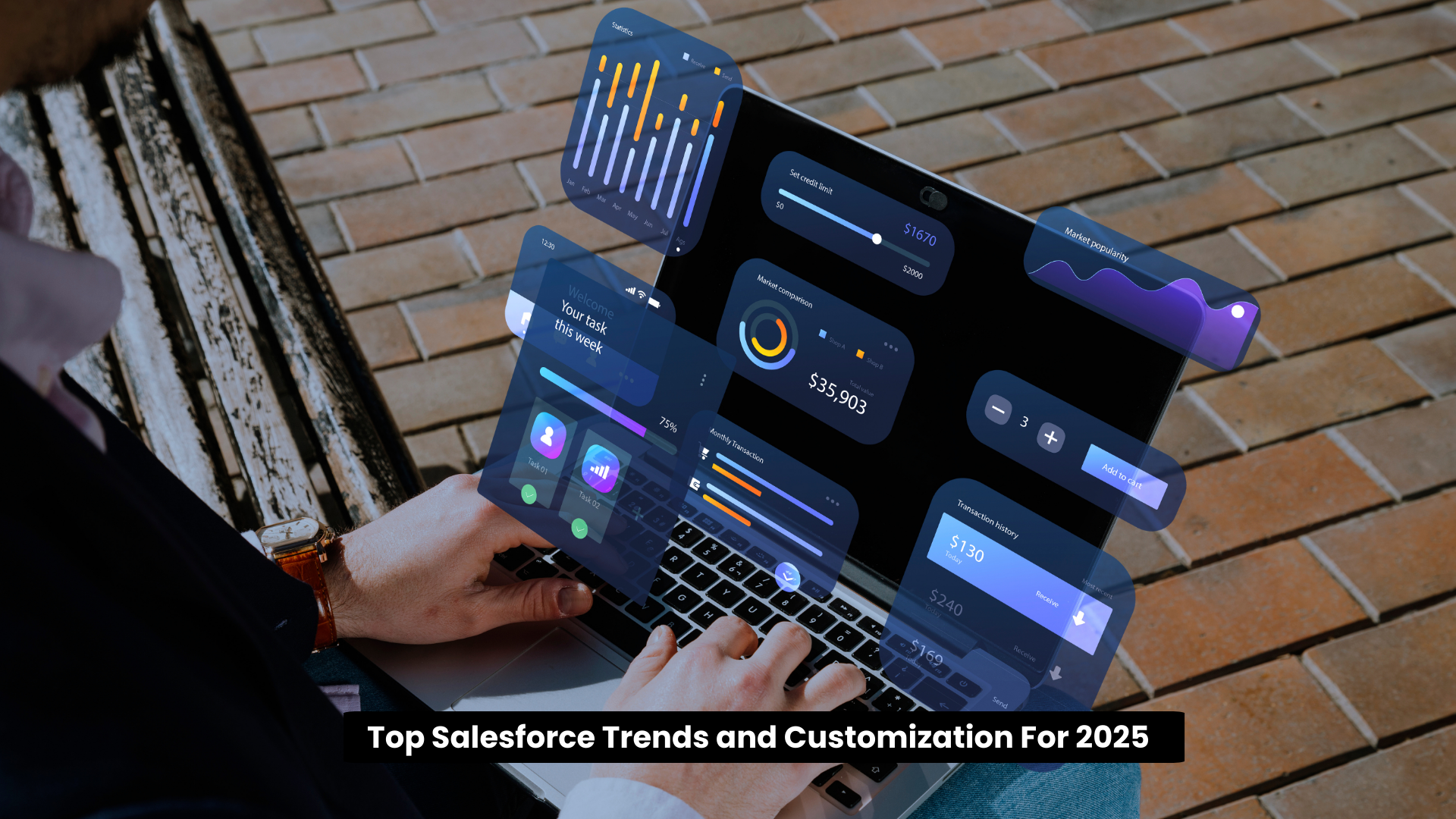The Salesforce ecosystem prepares for an active transformation during which businesses will move toward 2025. Maximizing efficiency and growth requires organizations and global institutions to study essential CRM trends and build tailored Salesforce implementations to develop competitive advantages in their markets.
Here are the top Salesforce Trends & Customization in 2025
1. Mobile and Social CRM: Meeting Customers Where They Are
- Due to the digital age, mobile CRM has become vital. Online CRM access for professionals necessitates mobile adaptations focusing on simple interfaces and the capability to work offline with native system features.
- Sales personnel can make opportunity updates through mobile devices to achieve instant data synchronization.
- Facebook Marketing and Twitter have gained importance because customers prefer social platforms for brand interaction.
- Salesforce integrates social channels to track customer sentiment while allowing businesses to respond to their clients through social media platforms.
- The design phase will develop social listening dashboards and convert social media posts to serviceable cases while establishing complete customer interaction visibility.
Read: Structural Repairs in Extreme Environments: Techniques and Case Studies
2. AI and Automation: Enhancing Efficiency and Insights
- CRM experiences a transformation through artificial intelligence via the implementation of Einstein by Salesforce, which provides predictive lead scoring, opportunity insights, and service case routing functions.
- For instance, AI predictions enabled marketing teams to develop customized email efforts that yielded superior outcome metrics.
- The implementation of Salesforce Einstein requires users to utilize the platform features while developing specific AI workflows that simplify operations and discover information patterns for better decisions.
- Business processes are becoming streamlined through automation tools, including Salesforce Flow.
- By 2025, lead scoring automation based on artificial intelligence will join forces with dynamic, tailormade customer routes to enter the market.
- Implementing Flow automated service case triage would deliver faster responses to customers, enhancing customer satisfaction scores.
3. Voice Recognition and IoT: Expanding Interaction Horizons
- Salesforce will implement voice recognition system integration, which will extend note-creation abilities through dictation and create time management efficiencies.
- The system features customizations that enable voice-to-text capabilities, voice-based shortcut commands, and AI voice bot interactions with customers.
- Chennai-based businesses must guarantee multilingual capabilities in their systems to achieve accurate transcription outcomes.
- Businesses can now utilize Salesforce through advancements made possible by the Internet of Things (IoT).
- Through IoT data integration, enterprises achieve both prevention of service breakdowns and customized advertising along with complete customer behavior intelligence.
- Tamil Nadu-based manufacturing operations could use IoT sensors to anticipate maintenance requirements while service cases automatically form using such data.
- Businesses can link and evaluate IoT information through Salesforce IoT Cloud to develop better workflows with smarter customer interactions.
4. Customer 360 and Commerce Cloud: Unifying Experiences
- Salesforce Customer 360 is an integrated method that gives businesses complete customer visibility across Salesforce cloud platforms.
- The future requires companies to dismantle their separate systems to offer unique and integral customer solutions by 2025.
- Flexible implementation of data integration pipelines and Customer Data Platform (CDP) capabilities will merge customer profiles into one unified database for accurate information.
- The Salesforce Commerce Cloud presents to businesses engaged in e-commerce operations a flexible infrastructure for handling their digital sales infrastructure.
- Businesses that are active today need to focus on three essential trends for 2025, including optimized headless commerce systems and AI solutions for product suggestions and mobile convenience options.
- Healthcare organizations can benefit from Commerce Cloud by providing localized shopping experiences through language and currency settings combined with AI-based product recommendation engines.
- The company will concentrate its custom work on implementing a headless framework optimizing mobile store appearances and developing AI-based customer recommendations.
5. Data Privacy and Hyper-Personalization: Balancing Trust and Tailoring Experiences
- The upcoming rise of data privacy issues and evolving GDPR standards make maintaining secure and compliant customer data handling a top priority.
- Implementation of privacy controls and consent management operations combined with the use of Salesforce Shield security features represents the key component of data protection customizations.
- Companies must maintain conformance to international data privacy requirements to successfully operate serving global customers.
- Businesses will establish hyper-personalization through Artificial Intelligence to differentiate themselves from the competition.
- The approach exceeds ordinary personalization through advanced insights that generate tailored, relevant experiences.
- The financial services company can develop specialized financial advice by utilizing customers’ objectives and tolerance for risk.
- Implementing hyper-personalization on Salesforce requires collecting detailed customer information using AI applications and content modifications that adapt to current behavioral patterns.
Conclusion: Charting a Course for Customer-Centric Success
The Salesforce business environment in 2025 will transform because of disruptive technologies and how customers expect companies to operate. Businesses must prevent falling behind market competition by embracing a customer-centric approach and sustained Salesforce customization, including mobile and social CRM, AI, IoT, and hyper-personalization applications. Organizations will achieve their success by implementing strategic Salesforce customization that optimize customer relationships and growth, fostering long-term loyalty. The ability to learn continuously with adaptability enables businesses to succeed in CRM’s future.


